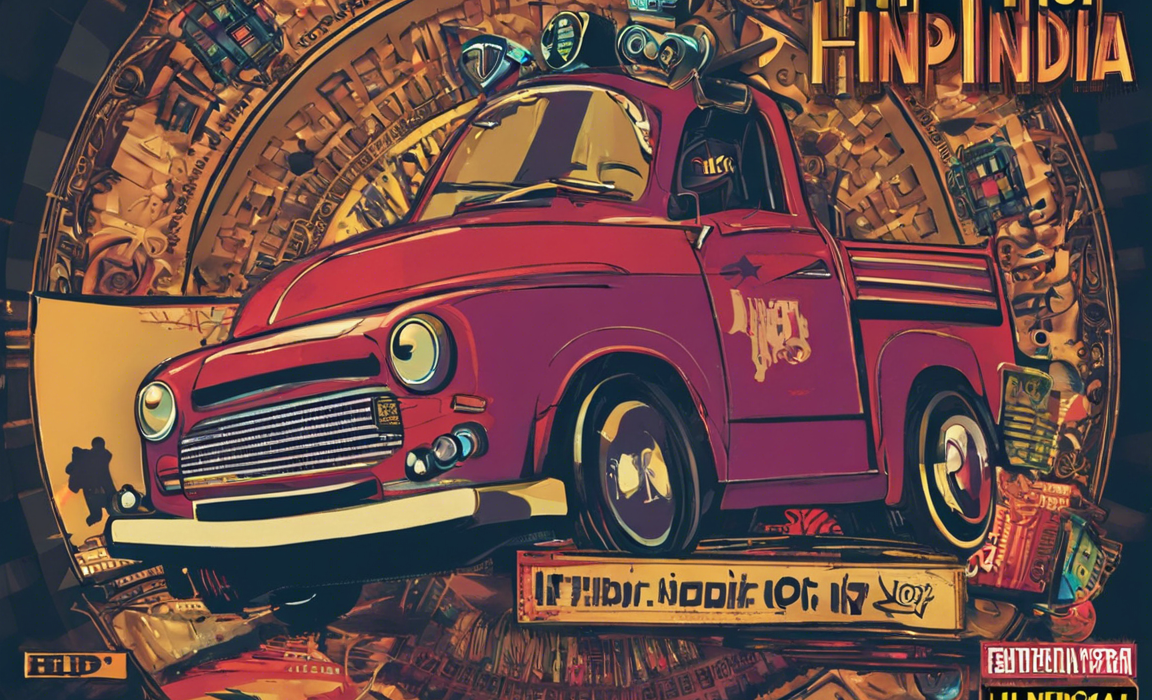India, known for its rich cultural tapestry, has a burgeoning hip hop scene that is rapidly gaining popularity both locally and on the global stage. Hip hop as a genre originated in the United States in the 1970s, but it has since evolved into a worldwide phenomenon that serves as a platform for self-expression, activism, and storytelling. In recent years, Indian hip hop artists have been making waves with their unique blend of traditional sounds, regional languages, and modern beats. Let’s delve into the vibrant and diverse hip hop scene in India, exploring its roots, evolution, key players, and impact.
The Roots of Indian Hip Hop
Hip hop first made its way to India in the late 1980s and early 1990s through the proliferation of Western music and culture. Influenced by iconic artists like Run DMC, Dr. Dre, and N.W.A, a nascent hip hop movement began to take shape in urban centers like Mumbai, Delhi, and Bangalore. Initially, Indian hip hop was primarily an underground phenomenon, with artists using the genre as a form of protest and social commentary.
Evolution and Diversification
Over the years, Indian hip hop has evolved and diversified, incorporating elements of traditional music, regional languages, and diverse cultural influences. Artists have been experimenting with fusing hip hop beats with genres like Bollywood, Punjabi folk music, and Tamil rap, creating a truly unique sound that resonates with audiences across the country. This fusion of old and new, traditional and modern, has given Indian hip hop its distinctive flavor and appeal.
Key Players in the Scene
Several artists have been instrumental in shaping the Indian hip hop landscape and bringing it to the forefront of the music industry. Divine, Naezy, Vivian Fernandes (Divine), and Seedhe Maut are some of the pioneers who have gained widespread recognition for their innovative music and socially conscious lyrics. These artists have not only achieved commercial success but have also used their platform to address important social issues such as poverty, inequality, and political corruption.
Impact and Influence
Indian hip hop has had a profound impact on the cultural landscape of the country, providing a voice to marginalized communities, challenging societal norms, and celebrating the rich tapestry of Indian diversity. The genre has also served as a medium for storytelling, allowing artists to narrate their personal experiences, struggles, and triumphs in a raw and authentic manner. Through their music, Indian hip hop artists have been able to connect with a new generation of listeners and inspire them to embrace their roots while also pushing boundaries and exploring new horizons.
The Future of Indian Hip Hop
As the Indian hip hop scene continues to gain momentum, it is poised for even greater growth and recognition both within the country and on the global stage. With platforms like YouTube, Spotify, and Apple Music providing greater visibility and access to audiences worldwide, Indian hip hop artists have the opportunity to reach new heights of fame and success. Additionally, collaborations with international artists and participation in global hip hop events have further solidified India’s position as a rising star in the hip hop world.
Frequently Asked Questions (FAQs)
-
What sets Indian hip hop apart from its Western counterpart?
Indian hip hop often incorporates traditional music elements, regional languages, and cultural influences, giving it a unique sound and flavor that reflects the country’s rich diversity. -
Who are some of the emerging artists to watch in the Indian hip hop scene?
Artists like Prabh Deep, Raja Kumari, Emiway Bantai, and Dopeadelicz are gaining traction and making waves with their innovative music and distinctive styles. -
How has social media impacted the growth of Indian hip hop?
Platforms like Instagram, YouTube, and SoundCloud have played a crucial role in amplifying the voices of Indian hip hop artists, allowing them to connect with fans, showcase their talent, and build a global audience. -
What are some common themes explored in Indian hip hop lyrics?
Indian hip hop lyrics often touch on issues like social justice, identity, urban life, and personal struggles, reflecting the realities and experiences of the artists themselves. -
How has mainstream Bollywood music influenced Indian hip hop?
Bollywood music has had a significant impact on Indian hip hop, with artists often sampling Bollywood songs, collaborating with Bollywood composers, and drawing inspiration from the infectious beats and melodies of Hindi films.
In conclusion, the Indian hip hop scene is a vibrant and dynamic ecosystem that continues to evolve and push boundaries, offering a platform for artists to express themselves, challenge conventions, and celebrate their roots. With its diverse sounds, innovative storytelling, and social consciousness, Indian hip hop is making a mark not just in the music industry but in the hearts and minds of listeners around the world.

